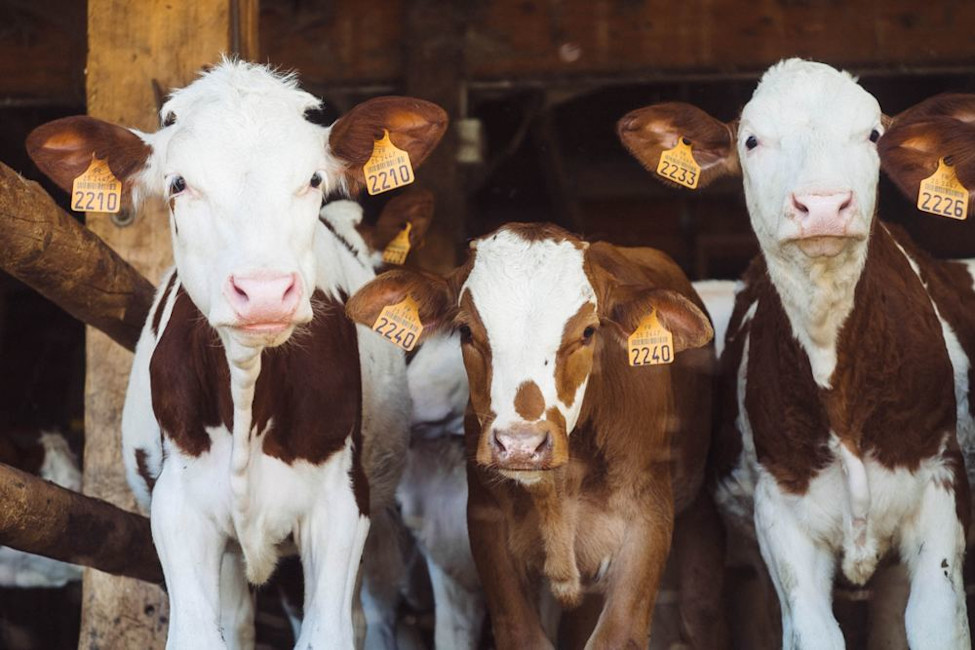
Global 2050 Food and Agriculture Roadmap
Statement Overview
Investors with US$18 trillion in assets urged the UN Food & Agriculture Organisation (FAO) to produce a Global Roadmap for the agri-food sector to align with 1.5C and Nature and Nutrition Security Goals by 2050.
The FAO has embarked on a three-year process, aiming to finalising this Roadmap for the Agriculture, Forestry and Other Land Use (AFOLU) sector by COP30 (Nov 2025). A first version was released by FAO in Dec 2023. FAIRR continues to engage with the FAO and other stakeholders on this.

Investor Statement
Letter to Mr Qu Dongyu, Director-General of the Food and Agriculture Organization
We, the undersigned, representing over US$18 trillion in combined assets, welcome the steps the Food and Agriculture Organization of the United Nations (FAO) has taken over the past years in strengthening food security, building resilience, and striving to mitigate climate change. In order to support the achievement of these goals, we are calling on the FAO to deliver a clear roadmap for the Agriculture, Forestry and Other Land Use (AFOLU) sector to a sustainable global food system by 2050. Given its mandate and reputation as the UN agency leading global efforts to build resilience, defeat hunger and improve nutrition and food security, the FAO is well placed to produce such a landmark report.
Currently, food systems account for around a third of global greenhouse gas emissions. Agriculture is the main threat to 86% of species at risk of extinction, whilst around three-quarters of the deforestation in the Amazon between 1978-2020 was caused by cattle ranching. Moreover, as the IPCC Special Report on Climate Change and Land showed, all assessed modelled pathways that limit warming to 1.5ºC or well below 2°C require land-based mitigation and land-use change. While the environmental degradation caused by food systems is multifactorial, evidence shows that even if fossil fuel emissions were eliminated immediately, food system emissions alone would make it impossible to reach 1.5°C, and sustainable diets play a key role. In addition, agriculture is highly vulnerable to climate change impacts, which has implications for food security.
As investors, we recognise the financially material risks to which the food system is exposed, from climate change, biodiversity loss, malnutrition, and antimicrobial resistance, as well as the material impacts that food system activities have on the environment. Accordingly, we urge the FAO to produce a global roadmap to 2050 that mitigates these risks and sets a standard for the industry. It is crucial that this roadmap aligns with the Paris Agreement’s goal of limiting global warming to 1.5˚C while ensuring the protection and restoration of nature, and achieving food and nutrition security goals.
At COP26, investors with more than US$12 trillion in collective assets called on G20 nations to disclose GHG emissions reduction targets in agriculture within or alongside their National Determined Contributions (NDCs), recognising the critical need to reduce the level of greenhouse gases emitted by the global agricultural supply chain. However, this highlighted the lack of a clear global roadmap to achieving the 1.5˚C goal in the agriculture and land-use sector, making it harder to set national and subnational targets. Moreover, a clear pathway is also needed for methane emissions, as agriculture accounts for about 40% of human-generated methane emissions and the UN has warned methane must be reduced in order to keep the 1.5˚C goal within reach.
Investors are increasingly aligning portfolios to address climate and nature risks. A central roadmap with key milestones can help investors align portfolios and engage with portfolio companies to minimise environmental impacts and exposure to climate and biodiversity risk. It should be clear to companies and other stakeholders in the sector, what volume of emissions must be mitigated to limit warming to 1.5°C, and the role each subsector must play in this mitigation. The International Energy Agency’s Net Zero roadmap has proven invaluable in demonstrating the pathway for the energy sector, and a similar pathway is now needed for agriculture. Investors have already played a crucial role in accelerating the energy transition in recent years, and with the right tools, investors can support a global food system transition.
Given its mandate and reputation, the FAO would be well placed to deliver this landmark roadmap, building on its 2018 report exploring ‘Alternative Pathways to 2050’ and other existing research. As investors, we are ready to support such efforts.
Thank you for considering our request, and we look forward to your response and our continued collaboration on this important topic.
Yours Sincerely,
Signatories
Align Impact
AllianceBernstein
Allianz Investment Management SE
Alwyn Capital
AP7 (Sjunde AP-fonden)
ASR Vermogensbeheer BV
Atlas Responsible Investors
Australian Ethical Investment
Aviva Investors
B & Capital
Baseline Wealth Management
Big Idea Ventures
BNP Paribas Asset Management
Boston Trust Walden
Canada Post Corporation Pension Plan
CANDRIAM
Capital Fund Management (CFM) S.A.
Capital Group International, Inc.
Capza
Castlefield Investment Partners LLP
Clear Skies Investment Management
Coller Capital
Comgest
Degroof Petercam Asset Management (DPAM)
Domini Impact Investments LLC
EdenTree Investment Management Ltd.
EFG Asset Management
EOS (Hermes Equity Ownership Services)
Evenlode Investment Management Ltd.
(The international business of) Federated Hermes
Fidelity International
Future Super
Genesis Investment Management, LLP
Greater Manchester Pension Fund
Impact Investors, Inc.
Impax Asset Management
Länsförsäkringar AB
Legal & General Investment Management (LGIM)
Mirova
Montanaro Asset Management
Natural Investments LLC
National Employment Savings Trust (NEST)
Ossiam
Pictet Group
LAPFF
Resona Asset Management Co., Ltd.
SCOR Investment Partners SE
SOSV
STANLIB Asset Management Ltd
Strathclyde Pension Fund
Sustainable Insight Capital Management
Swedbank Robur Fonder AB
Unovis Asset Management
Vancity Investment Management
Veronorte
Rize ETF
LocalTapiola Asset Management Ltd
River and Mercantile LLC